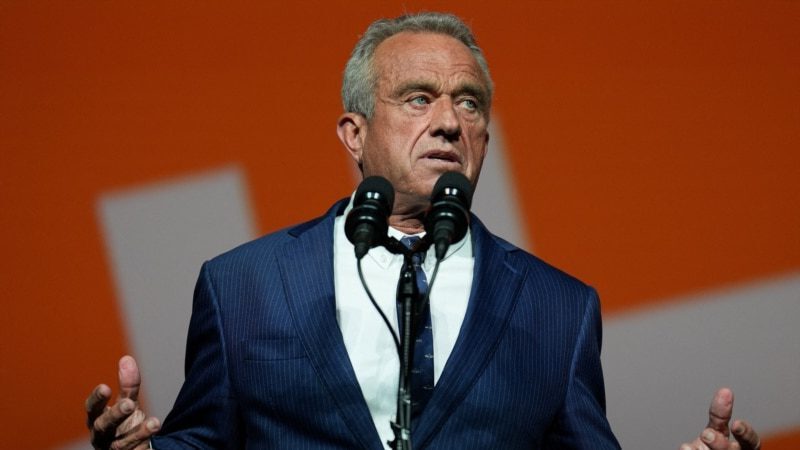BTN News: In a significant legal setback, Robert F. Kennedy Jr., the prominent independent candidate in the 2024 presidential race, has been barred from appearing on New York’s electoral ballot. The decision came after a New York judge ruled that Kennedy had falsely claimed residency in the state, despite living in California. The ruling, which Kennedy has vowed to appeal, could potentially affect his eligibility in other states as well, further complicating his already contentious campaign.
Judge Christina Ryba delivered a detailed 34-page ruling, concluding that the bedroom Kennedy cited as his New York residence was not a “legitimate and bona fide residence,” but rather a “sham address” used for political gain. Ryba’s ruling emphasized that the modest guest bedroom, located in the home of a friend in Katonah, New York, was insufficient to meet the legal requirements for residency under New York’s election laws. The judge found it “highly improbable, if not absurd” that Kennedy, along with his wife, family members, and numerous pets, could realistically reside in the small space.
The legal challenge was spearheaded by Clear Choice Action, a political action committee aligned with the Democratic Party, on behalf of several New York voters. The group argued that Kennedy’s use of the Katonah address, where he admitted to having spent only one night, was a deliberate attempt to deceive election officials and voters. The judge agreed, stating that Kennedy had a “longstanding pattern” of borrowing addresses from friends and family in New York while actually residing in California, where he owns a home with his wife, actress Cheryl Hines.
Kennedy, however, maintains that his ties to New York are deep-rooted and genuine. He pointed to his decades-long leadership of a New York-based environmental group, his New York State bar membership, and various state-issued licenses as evidence of his connection to the state. Despite these arguments, Judge Ryba dismissed them as “immaterial” without proof of physical presence at the specific Katonah address.
The ruling has ignited a heated political debate, with Kennedy accusing the Democratic Party of undermining democracy by trying to eliminate his candidacy through legal maneuvers rather than at the polls. “Democrats are showing contempt for democracy,” Kennedy stated, accusing the judge of partisanship. He vowed to appeal the decision, asserting that voters deserve the chance to choose their candidate freely.
This development in New York comes on the same day that a separate legal challenge in North Carolina was resolved in Kennedy’s favor, allowing him to remain on the ballot there. The contrasting outcomes highlight the complex legal landscape that Kennedy’s campaign faces as it navigates multiple challenges across the country.
The implications of this ruling could extend beyond New York. If the decision is upheld, it may lead to similar challenges in other states where Kennedy used the Katonah address to gather signatures. This could jeopardize his ballot access nationwide, potentially derailing his independent bid for the presidency.
Kennedy’s campaign has been marked by controversy from the start, not only because of his political stance but also due to the high-profile name he carries. The Kennedy family, a staple in American political history, has seen its latest member face increasing scrutiny as he tries to carve out his own path in a deeply divided political landscape. Despite these hurdles, Kennedy’s campaign has shown resilience, and his supporters believe he has the potential to perform better than any independent candidate in decades, thanks to his famous name and loyal following.
However, as Kennedy’s legal battles continue, the road to the 2024 election becomes increasingly fraught with challenges. Both Democratic and Republican strategists are watching closely, concerned that his candidacy could siphon votes away from their respective nominees, potentially altering the outcome of the election. With Kennedy promising to fight on and appeal the New York ruling, the legal and political drama surrounding his campaign shows no signs of abating.
As the election approaches, the question remains: will Robert F. Kennedy Jr. overcome these legal obstacles and remain a viable contender, or will his candidacy be derailed by the very system he seeks to challenge? The outcome of his appeal and the potential ripple effects across other states will likely play a critical role in shaping the 2024 presidential race.


